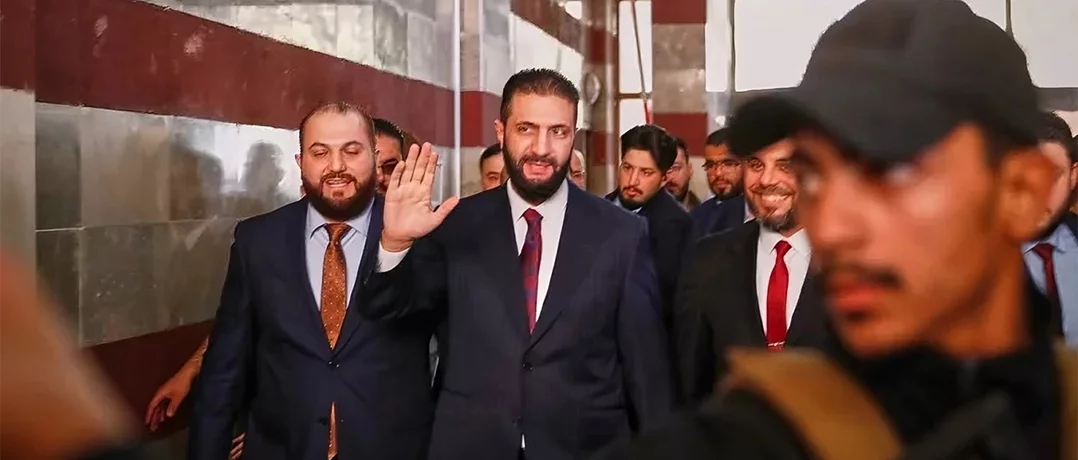Syria held its first elections since Assad’s fall, testing the interim government amid limited voting and low minority representation.
Historic vote in Syria tests new leadership amid ongoing challenges
Historic vote in Syria tests new leadership amid ongoing challenges


On Sunday, October 5, 2025, Syria held its first general elections since the fall of the Assad regime in late December 2024. Under the ousted regime’s 50-year repressive rule, Syrians have witnessed merely symbolic elections, often referred to as “mubaya’a” (meaning “pledge of allegiance”), as the Baath Party has always dominated the parliamentary seats and scene.
This year’s elections gained significant local, regional and international attention since it put the new interim authorities to the test regarding matters of democracy, transparency and inclusivity.
Key insights regarding the parliamentary elections
The People’s Assembly (i.e. Syria’s parliament) is composed of 210 seats, voted upon by 7,000 electoral colleges and divided proportionally amongst Syria’s 60 districts according to population size (the city of Aleppo being the most significant district, with 700 electoral college members and 14 seats, followed by the city of Damascus).
Thus, the elections were not based on popular vote, as interim authorities claimed to be impossible at the moment given two predicaments: the internal and external displacement of millions of Syrians as well as the loss of essential personal documents throughout the Syrian civil war.
Furthermore, according to the organizing committee, 14% of the registered candidates were women, while Syrian American Jew Henry Hamra ran for a seat (vying to become the first Jewish member of parliament in the country since the 1940s). Hamra had pledged to bring back Syria’s long-lost Jews and preserve the country’s rich heritage and cultural identity.
Contentious issues regarding the democratic and inclusive nature of the elections
However, despite some domestic optimism regarding a potential democratic shift in the country’s political landscape, two contentious and critical issues signal a more pessimistic and cautious overture towards true and genuine democracy.
The first issue centers around interim President Ahmad al-Sharaa’s direct appointment of one-third of the parliament’s seats (allocating the latter to competent and high skilled individuals), on the grounds that it ensures diverse representation and fills any potential gaps. This means that, in effect, the Syrian population only got to vote for 140 (70%) of the People’s Assembly.
The second revolves around the indefinite postponement of elections in the southern province of Sweida (where deadly clashes occurred between the Druze community, on the one hand, and the Arab Bedouins backed by government-affiliated forces, on the other in July 2025) and the areas of the northeast controlled by the Kurdish-led Syrian Democratic Forces (as the SDF and the new regime in Damascus have yet to agree on a mutual political understanding on pressing issues; such as SDF’s integration into the Syrian military and a decentralized approach to governance) due to ongoing tensions between local authorities and the central government. Such postponement entails that the targeted areas’ seats will remain empty until further notice. Hence, Sunday’s elections were held with around 6,000 electoral college members from 50 districts for only 120 seats.
Moreover, concerns about inclusivity in the general elections were also present. This was especially true due to the absence of any set quotas for representation of women and minorities (which only exacerbated with the exclusion of the Druze and Kurdish minorities as mentioned earlier). Failing to uphold fair and just representation of all societal components will only widen the gap between them and the central authorities (especially after the recent sectarian clashes with the Druze and Alawite communities) as well as hinder any reconciliation efforts to achieve what is known as “positive peace” (which focuses on a more enduring and sustainable peace by constructively addressing the core issues and root causes of the conflict).
A test for Syria’s interim government
Whatever the results will be, it will nevertheless test the mew authorities’ competency and transparency, which will have notable effects on al-Sharaa and his cabinet’s image (domestically and abroad). It will also send potential signals, although not definitively (especially due to some aforementioned exclusions), regarding the presidential elections which will take place in four to five years.


